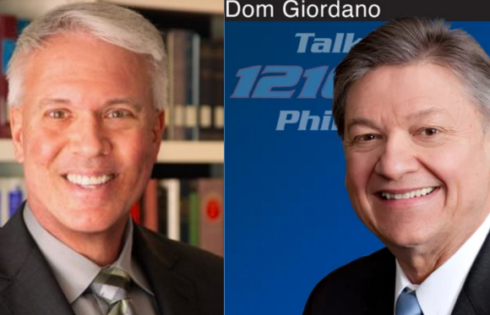 In 2008, Obama took two thirds of the coveted 18-29 voting block. With an eye to repeating these numbers in 2012, the Obama campaign has recently launched its youth arm, the “Young Americans– Greater Together” campaign, with a student summit at the University of Pennsylvania.
In 2008, Obama took two thirds of the coveted 18-29 voting block. With an eye to repeating these numbers in 2012, the Obama campaign has recently launched its youth arm, the “Young Americans– Greater Together” campaign, with a student summit at the University of Pennsylvania.
The Greater Together website is both sleek and youthful. The blog does its best to provide young Democrats with talking points for the dinner table while staying appropriately chatty: “When you go home this year, don’t forget to mention a few of the things that the President has done for you. If you’re anything like me, you’ll be talking for a while.”
There is also an online store, where the fashion-conscious young voter can pick up some Obama yoga pants, messenger bags, or their very own Joe Biden beer cozy. (Hint: Stocking Stuffer!)
But all glitz and gloss aside, where does the President stand with young voters? Will he be able to count on their support the same way he did four years ago?
Tobin Van Ostern, communications director for Campus Progress, says yes. “While students are waiting until a little closer to election day to get involved in any campaign activities—right now they’re just worried about their midterms—they’re definitely invested in the next election,” he says. “Jobs are young Americans’ number one concern.” With the youth unemployment rate hovering around 18 percent—almost double the national average—this is not surprising.
Students are feeling general anxiety about their economic futures. However, “there’s no single opinion on the way to go forward. College students are worried about their student debt, but those who can’t afford to go to college are worried about getting financial aid.” How has the President done in addressing these concerns? So far, Van Ostern gives him an “incomplete grade.”
Obama “still has to make his case to the youth… Greater Together is still in the very early stages.” Although “we don’t know who he’s running against…its apparent that on every issue the President cares about young people. It will be up to the other candidates to prove the same commitment on the issues. ”
Van Ostern asserts that it is the President’s stance on non-economic issues that will win over young voters.
“Many of the other candidates have taken positions unpopular with young people, [on] immigration, the environment, or gay rights. Any candidate will have to be on the rights side of those issues…This is the most progressive generation we’ve seen in an a long time. [Obama] is their best bet.”
Professor John Pitney of Claremont McKenna College disagrees. While Obama has “taken positions that appeal to young people, ” Pitney says, “there’s a limit to what he can do on things like gay rights—that’s not within his power. He’s having a rendezvous with reality. Issues like student debt are a periphery issue to unemployment—and marginal changes to the student loan program won’t cut it.”
Pitney suggests that the only time voters have time to focus on social issues is when the economy is booming. “The economy tends to overwhelm social issues…when you can’t find work, that’s the most important thing—that’s just the way it always works, in the 19th century and in the 22nd century.”
To put it bluntly: “Obama won because the economy was lousy and if it’s still lousy he’s going to lose.”
While Pitney admits that, “It’s very likely that Obama will win a pretty healthy majority of young voters, how many young Americans will show up to vote? They’re disappointed, maybe unfairly, but in 2008 he represented hope and change and now he represents the status quo. That’s not as exciting.”
Pitney believes that the Republicans are more likely to reap the benefits of voter disillusionment and apathy than they are to attract young voters.
Yet, as Michael Barone noted in the Washington Examiner earlier this summer, in a recent PEW survey “The Democratic edge in party identification among white Millennials dropped from 7 points in 2008 to 3 points in 2009 to a 1-point Republican edge in 2010 and an 11-point Republican lead in 2011.”
Young voters aren’t just slipping away from Obama—they seem to be actively identifying with the GOP. Is it possible that “the most progressive generation” might be at an ideological turning point?
AEI’s October Political Report cites a CNN poll from September in which only 25 percent of 18-29 year olds surveyed said they believed that “Social Security will have the money available to provide the benefits you expect for your retirement.”
When asked if they thought the phrases “monstrous lie” and “failure” are an accurate description of the Social Security system, only 27 percent of Americans said yes. But when the data is split up by age, 42 percent of 18-29 year olds were prepared to call the system a failure.
It’s only one issue out of many—but if the crisis in entitlements is really as close as the Congressional Budget Office projects, then Millennials may be forced out of necessity to think differently about the future.
Kate Havard is a senior at St. John’s College.
Like The College Fix on Facebook / Follow us on Twitter





Please join the conversation about our stories on Facebook, Twitter, Instagram, Reddit, MeWe, Rumble, Gab, Minds and Gettr.